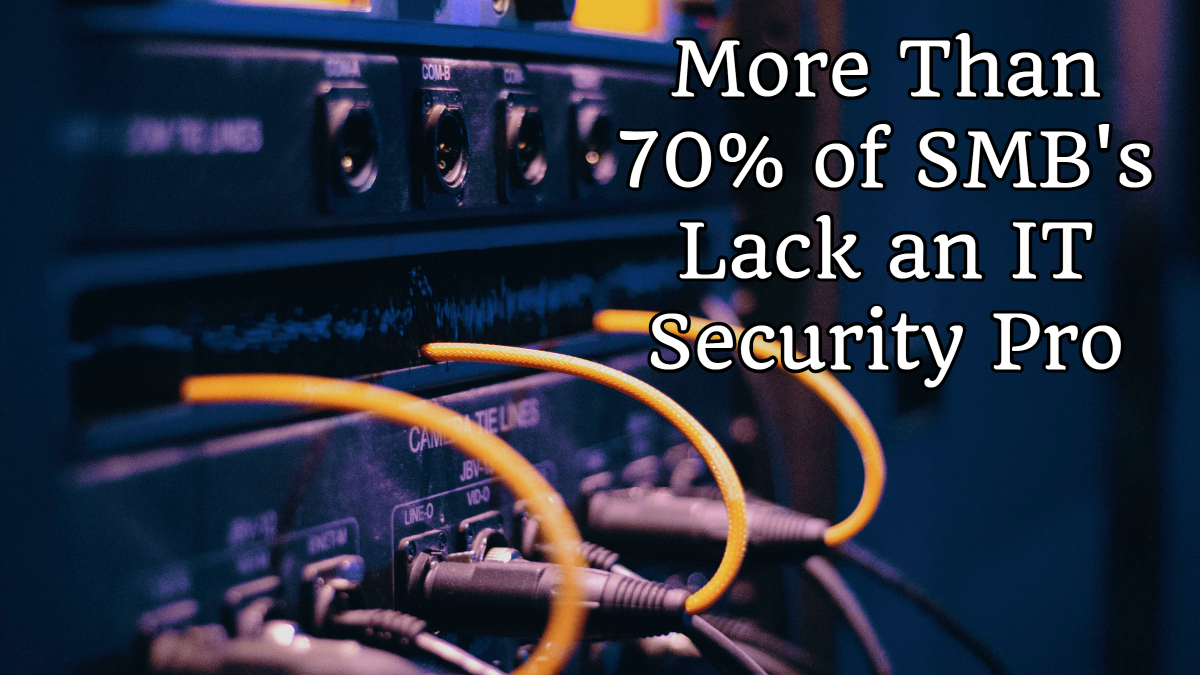Small and medium businesses (SMBs) face various security issues. However, resource constraints limit most of them from acting on the risk. 80% of SMBs agree that security is a big concern according to a survey.
Limited resources put SMBs at a very high risk of financial losses from security concerns. Most of these businesses are often left to fend for themselves according to the report.
More than 70% of SMBs lack IT security pro on staff. In fact, most of them (52%) share IT security responsibilities across other roles. This implies that most of the employees have to adopt two job responsibilities.
Budget constraints remain as the biggest hindrance for SMBs. 50% of participants mentioned that they allocate less than $5,000 to IT security annually. Moreover, half of them allocate less than $1,000. In 2018, 96.3 billion dollars will be spent on enhancing enterprise security. With such a small budget, SMBs cannot be able to catch up with ever-evolving cyber threats.
In the last 12 months, the most common attacks on SMBs were ransomware, phishing attacks, and malware. 40% of SMBs experienced these attacks according to the report. 
Ways SMBs can Protect Themselves
Although SMBs face countless hurdles to protect themselves, some measures can be taken.
Educate employees
Educate employees on cyber-attacks and separate internal networks from the public or mobile devices.
Multifactor authentication
Multifactor authentication is another simple but necessary step that companies can adapt to safeguard themselves from cyber-attacks. If it becomes too expensive, encourage your employees to change passwords frequently.
Use strong passwords
Using strong passwords is the easiest way to strengthen your security. Use a combination of lower and capital case letters, symbols and make it at least 8 characters long.
In addition, Microsoft recommends the following:
- Avoid using personal data
- Avoid common words spelled backward
- Avoid numbers close or following each other on the keyboard
It’s recommended to change passwords every 90 days. However, don’t hesitate to change it frequently, especially when dealing with highly sensitive data.
Also, ensure that every employee has their own password and username. Never use a shared password. Lastly, never write your password down.
Put up a strong firewall
To protect your network properly firewalls are mandatory. A firewall regulates traffic coming in and flowing out of your business.
Install Anti-virus Protection
In your arsenal of online security antimalware and antivirus software are obligatory. If an attack sips through your network, antimalware and antivirus are your last defense.
Regularly update your programs
Ensure your computers are not only patched but also updated. Security programs are as good as their recent update. Even though they may not be 100% secure, updating them keeps your business safe.
Secure your mobile devices
Portable devices are at a high risk of getting lost or theft because of their mobile nature. Take extra steps to protect your laptops to safeguard sensitive data. Encrypt your laptops with software. Encryption changes the way information looks on any hardware. Without the correct password, no one can read your data.
Backup regularly
Schedule regular backups in the cloud or an external hard drive to safely store your data.
Security is a big threat to most SMBs. With limited budgets allocated, necessary action should be taken to protect them. The need for state-of-the-art IT services is needed now more than ever.



